Downton Abbey, Mrs Maisel, And The Nigerian Gay Clime
Awhile back, I watched two Western television back to back. One was Downton Abbey, the movie. And the other was the third season of The Marvelous Mrs Maisel. And it was striking to me how these narratives of a Western past is very much our present in the Nigerian gay clime.
(For those who haven’t seen either of the two and still intend to, there’ll be spoilers ahead.)
The Downton Abbey movie was centred in 1927 England, during the period of King George V’s reign. Anybody who’s seen the 6-seasoned TV show that this movie is sequel to will fit right into the storytelling of the film. The characters are the same, the stories of their lives continuing seamlessly from where the series ended.
Of particular interest to me was the gay butler of Downton, Thomas Barrow (played by Robert James-Collier). This was a man who was very striking in the series because of how villainous he was, his Machiavellian plotting intermittently interrupted by brief flashes of humanity that made him someone you weren’t sure whether to hate or root for. This was especially difficult for me because he is gay, and as a gay person desperately seeking representation back then, I both resented and admired him.
However, by the time the series wrapped, his character was redeemed. Much like Jaime Lannister on Game of Thrones, Thomas found his way from bad to good, and we loved him for it. And knowing that he was coming back for the movie made me anticipate all the ways his character could have developed.
And then, the trailer was released and we saw him kissing a man. That just opened a floodgate of anticipatory questions. Who was this man that Thomas is kissing? A love interest or a passing flame? What did this mean for him in Downton? Was he out? Was he still in the closet? Did anybody catch them kissing? Would he be cast out of Downton? Would he be accepted? WOULD THERE BE A GAY WEDDING IN DOWNTON?
All these questions and many more were answered when I finally saw the film. And I loved it. Amidst all the chaos of the Grantham household’s personal lives and the drama of hosting the king and queen of England in Downton, there were narratives of the life Thomas Barrow was living as a gay man. The understated flirtation with one of the king’s valets, Richard Ellis (played by Max Brown). His wonder at discovering an underground safe space, where men like him could dance and canoodle. The homophobia. The anxieties. The pain of living in a time when he couldn’t be who he truly was.
I was especially struck by a sense of déjà vu when I watched the scene at the underground safe space – a place that doesn’t remain safe for very long, as the police raids it and rounds up all the men who’d previously been dancing and laughing and mingling and just generally glorying in the freedom of being themselves. The police simply sweep in, arrest them all and cart them off to the station.
And I was there thinking about how this 1927 storytelling was very much like the 2018 reality of us gay Nigerians. Where we can all just be at a birthday party, having a good time and being no threat to anyone – and the police will sweep in and round us all up like criminals. (The party at Egbeda, anyone?)
The season 3 of The Marvelous Mrs Maisel, on the other hand, was set in 1958 America. If you’ve been following this show, then you would know that it’s a brilliant piece of comedy that follows the titular character, Miriam ‘Midge’ Maisel (played by Rachel Brosnahan) on her journey of discovering and asserting her womanhood in a patriarchal America. She is a comedienne taking up space in a male-dominated industry, and in the third season, she is on her first international tour opening for the famous singer, Shy Baldwin (played by Leroy McClain).
What we soon learn in this season is that Shy is a closeted gay man, whose career hinges on keeping everything about himself hidden behind a veneer of smiles and pretty girls.
This is revealed in the episode, Kind of Bleu, the show is about to start and Shy is missing. The band is so used to this happening that Midge is met with scoffs when she shows concern. She then takes it upon herself to lead a one-woman search party, and soon discovered a bloody and beaten Shy in his rented boat. And as he winces in pain through Midge’s ministrations, we learn Shy’s secret. He’d apparently gotten his ass kicked by a guy he picked up at a bar; something that Midge is a little slow to pick up on.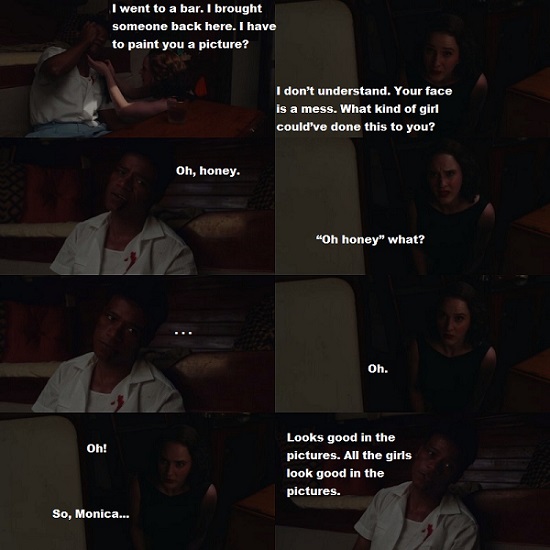
As I watched this scene, I got another sense of déjà vu, because of course, isn’t that the nature of most kito situations in present-day Nigeria? The closeted gay Nigerian who meets to hook up with someone who is presumably gay – only for this hookup to turn sour when the stranger he’s invited into his bed turns on him, sometimes with a gang, harassing him and roughing him up, to eventually leave with his valuables.
Because I watched these two pieces of television back to back, the irony of how much these narratives mirror our present-day lives as LGBTQ Nigerians wasn’t lost on me. The tragedy of how what is essentially the past lives of the LGBT West, battles so previously endured, is what we are currently slugging through. This is so ridiculously evident in some of the arguments that rage between gay Nigerians and homophobes on- and offline, where prejudice takes the form of such outdated notions like “it is not in our culture”. When you hear such comments bandied about, you get the impression that the homophobe arguing with this is mentally stuck in the period when twins were killed and chief priests served as part of the community legislation. A very archaic period that struggles to fit into the progressive times that the world is moving on – but which somehow feels right at home in the regressive Nigerian society.
Why, it was just a few weeks ago when I encountered a post on Facebook where someone was arguing quite authoritatively that homosexuality is a mental illness. This person’s authority on the subject was based on references drawn from works published in the 60s – works published before 1973, when the American Psychiatric Association removed homosexuality from the list of mental illnesses.
Whenever the topic of homosexuality comes up in a Nigerian setup, it is as though the mindset of the average homophobe pushing against it is stuck in prehistoric times. And whenever the experiences of LGBTQ Nigerians are talked about, it feels like we are comparing notes with the gay men and women of the rest of the world who lived in decades past.
As saddening as this may seem, the fact that our current realities are the lived experiences of other societies’ past actually gives me hope about our future. In the Downton Abbey movie, Thomas is returning home from the ordeal where he was rounded up along with other gay men by the police, and he is in the company of Richard, the king’s valet who he’d earlier been low-key flirting with – and who had now confirmed to him that he too is gay. And these two men are carrying on with a conversation that is very common in the present-day Nigerian gay community.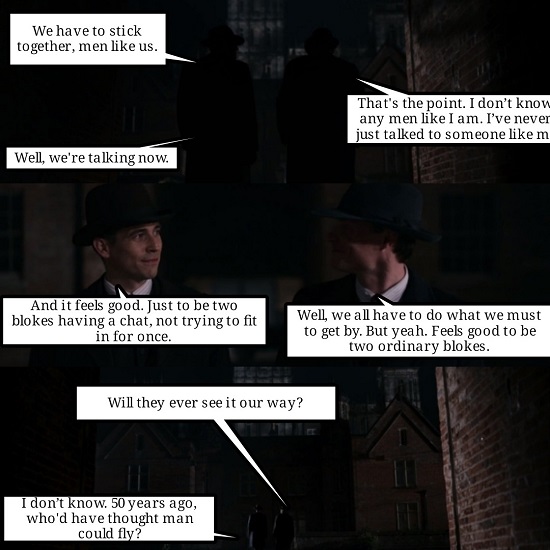
“Will they ever see it our way?” Thomas asks of a society that seems to be blinded to the humanity of people like him.
Will they ever see things our way? Will they ever learn to just let us live? Will they ever understand that our existence means them no harm?
And Richard gives a response that resonates with hope: “I don’t know. 50 years ago, who’d have thought man could fly?”
50 years ago, who’d have thought a blog such as Kito Diaries would exist on the Nigerian blogosphere? 50 years ago, who’d have thought that debates about LGBT issues would be so hotly contested on public spaces? 50 years ago, who’d have thought that gay Nigerians would demand – and create – more visibility for themselves, intruding on spaces that have always been heterosexual?
50 years ago, who’d have thought we’d be here today?
That is why, even with all the bleakness that the prejudice we’re surrounded with forces on us, I still see the bright beam of hope. Because 50 years from today, we will have moved forward to a place where our experiences today will serve as stories of an incredulous past.
During the time that #EndHomophobiaInNigeria trended on Twitter, someone tweeted something that I have taken to heart as a prophesy: “Bigotry is loud and bold today, but a time will come when you will hide in shame because we stand now refusing to be silent in the face of your senseless hate.”
Written by Pink Panther
About author
You might also like
Coronavirus: The Do’s And Don’ts Of Having Sex During The Pandemic
Originally published on NY Post Having sex during this period of the coronavirus lockdown is a health concern — but also a way to stay healthy. Public health officials
Waka Pass Diaries (After Watching ‘How To Get Away With Murder’)
October 29 I just recently watched the last episode of the current season of How To Get Away With Murder. And set apart from the (frankly boring) intrigue of Laurel
UNEXPECTED PLEASURES
I was at Muson Centre for a concert. A friend of mine, a cellist, was part of a performance that was going to play on that day. By the time

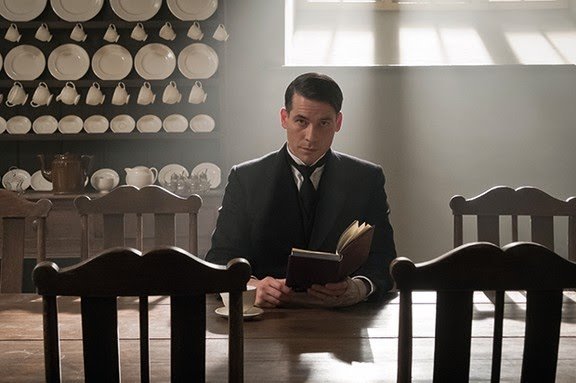
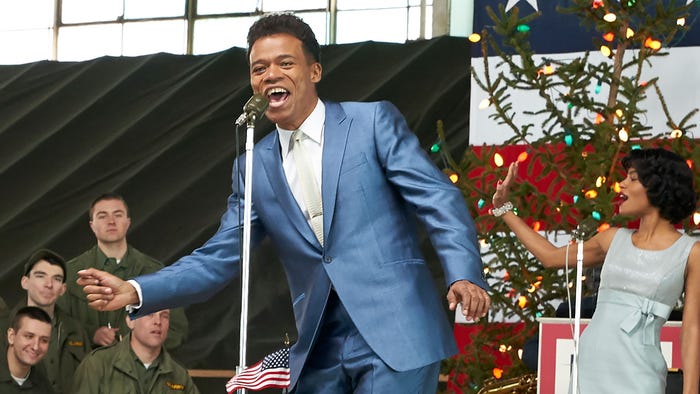
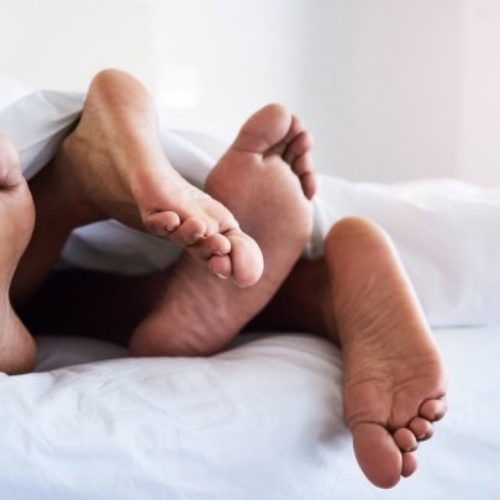
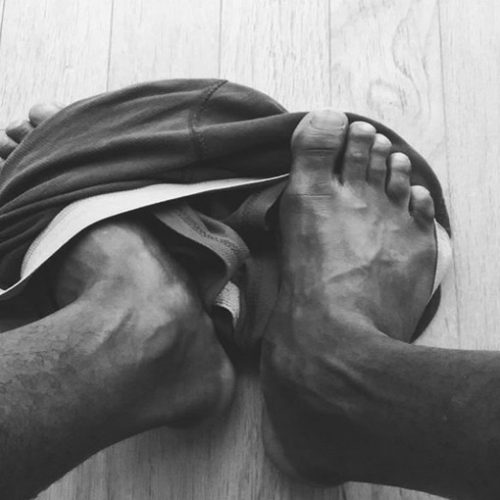
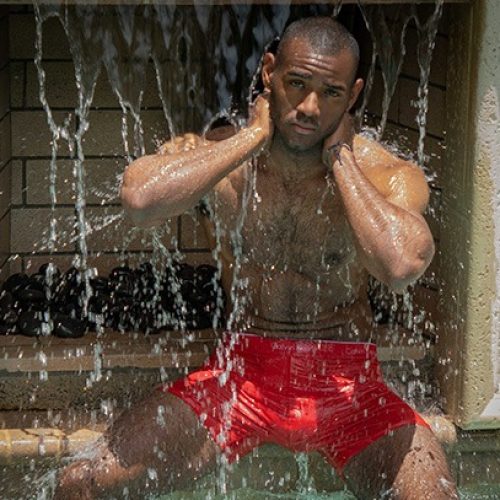






9 Comments
Colossus
March 28, 06:26You know, sometimes when I think of our present state of things, I tell myself this too shall pass. There will come a time when Homophobia would no longer be tolerated, when it would no longer be fashionable to be a homophobe. The west has gone through what we did, evidenced by all you’ve described in this post, it should only be a matter of progression for us to get to a more tolerable society.
I think of this future and it makes me happy then I tell myself this won’t happen in this lifetime, not my lifetime. It gets depressing again but then, the struggle has always been a collective one. Hopefully we can help change the tide for the next generation to come.
Pink Panther
March 28, 06:35You’re right. The only blight on my hope that this future will happen is the thought that it may not happen in my lifetime. But oh well… We move.
Mitch
March 28, 07:43Things will change. They definitely will. Whether in our lifetimes or in that of the kids that come after us, one thing is certain: The culture of homophobia in Nigeria will change. All our words, all our actions, all our outcries, all these tiny pieces of revolt against the system will one day lead to the dismantling of the homophobic structure of LGBT oppression in this country.
ChubbyLover
March 28, 10:20People spend so much energy in acceptance game.
Fuck validation…..just live your life!
Yeah!
March 28, 16:14We aren’t groveling for validition but the space and right to exist without violence meted on us
Astar
March 29, 12:13This article was meant to give us hope, but I’m rather saddened by it. I’m 30. I’ve loved kids all my life and dreams daily of building a family. But I can’t! I’ve been following some gay couples on instagram and YouTube, they are living life I can only dream about. Fearing and wondering if it will turn out that in some decades, l will be like the fifty and sixty years olds, commenting how their time never allowed them live and love freely.
BB
March 30, 08:04Yeah i understand how you feel and i am so sorry❤
Francis
April 05, 13:32I hear some people are doing it successfully in Nigeria. It’s all about money and privacy ?♂️. By God’s grace you’ll get what you desire or something close and if you don’t, oh well. Just remember that you’re better off than some peeps and that should keep numb the pain and FOMO a little
Hollywood’s Rock And Archie Held Hands Together. Will Nigeria’s Tom, Dick And Felicia Ever Get To Do The Same? | KitoDiaries
May 07, 07:24[…] in me in how reflective it is of most gay relationships in Nigeria currently. (Y’all know me: watching gay-themed Western television means I am almost always looking out for the ways they reflect my life as a gay Nigerian. And […]